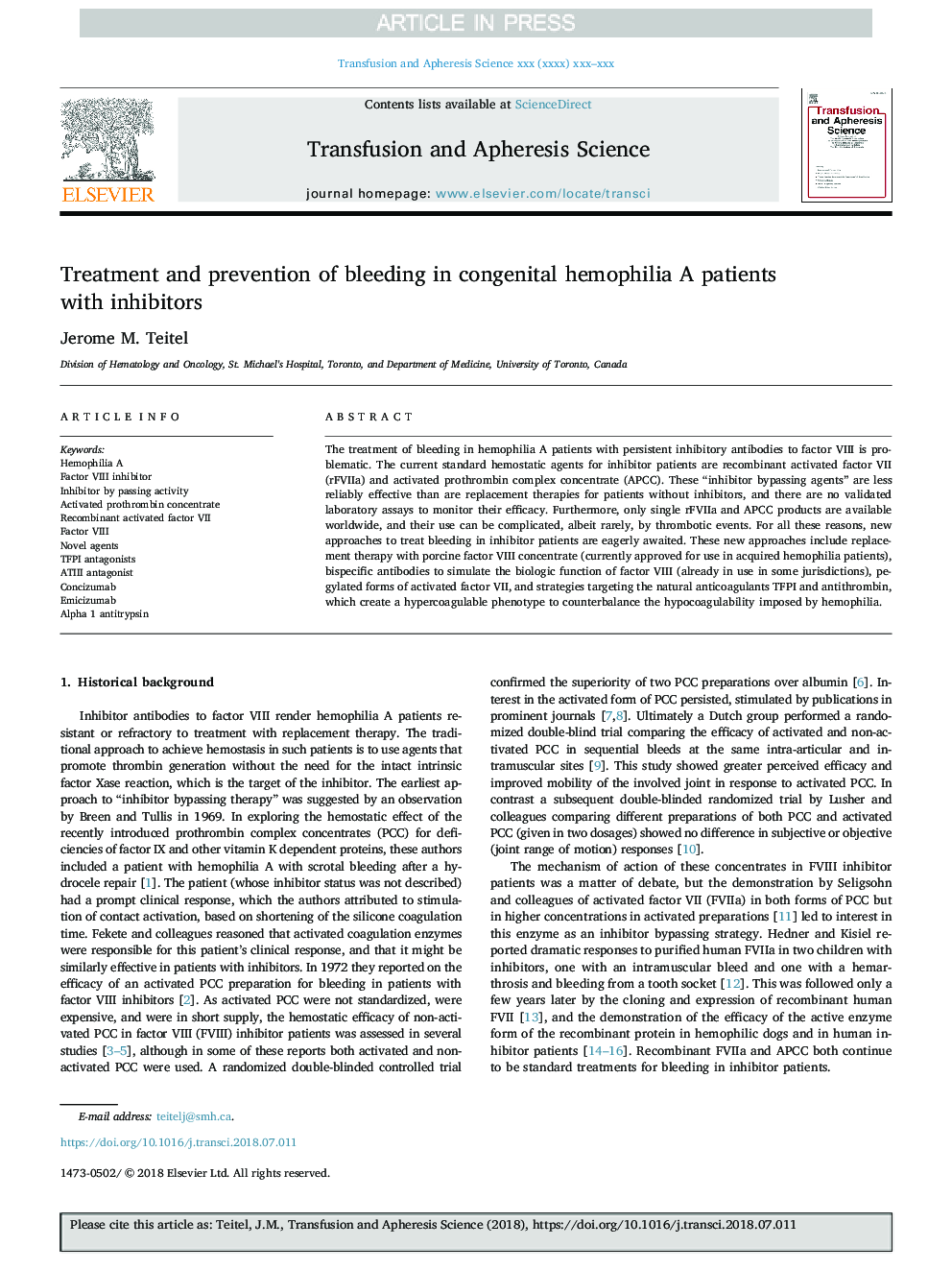| Article ID | Journal | Published Year | Pages | File Type |
|---|---|---|---|---|
| 10218344 | Transfusion and Apheresis Science | 2018 | 6 Pages |
Abstract
The treatment of bleeding in hemophilia A patients with persistent inhibitory antibodies to factor VIII is problematic. The current standard hemostatic agents for inhibitor patients are recombinant activated factor VII (rFVIIa) and activated prothrombin complex concentrate (APCC). These “inhibitor bypassing agents” are less reliably effective than are replacement therapies for patients without inhibitors, and there are no validated laboratory assays to monitor their efficacy. Furthermore, only single rFVIIa and APCC products are available worldwide, and their use can be complicated, albeit rarely, by thrombotic events. For all these reasons, new approaches to treat bleeding in inhibitor patients are eagerly awaited. These new approaches include replacement therapy with porcine factor VIII concentrate (currently approved for use in acquired hemophilia patients), bispecific antibodies to simulate the biologic function of factor VIII (already in use in some jurisdictions), pegylated forms of activated factor VII, and strategies targeting the natural anticoagulants TFPI and antithrombin, which create a hypercoagulable phenotype to counterbalance the hypocoagulability imposed by hemophilia.
Keywords
Related Topics
Health Sciences
Medicine and Dentistry
Hematology
Authors
Jerome M. Teitel,
